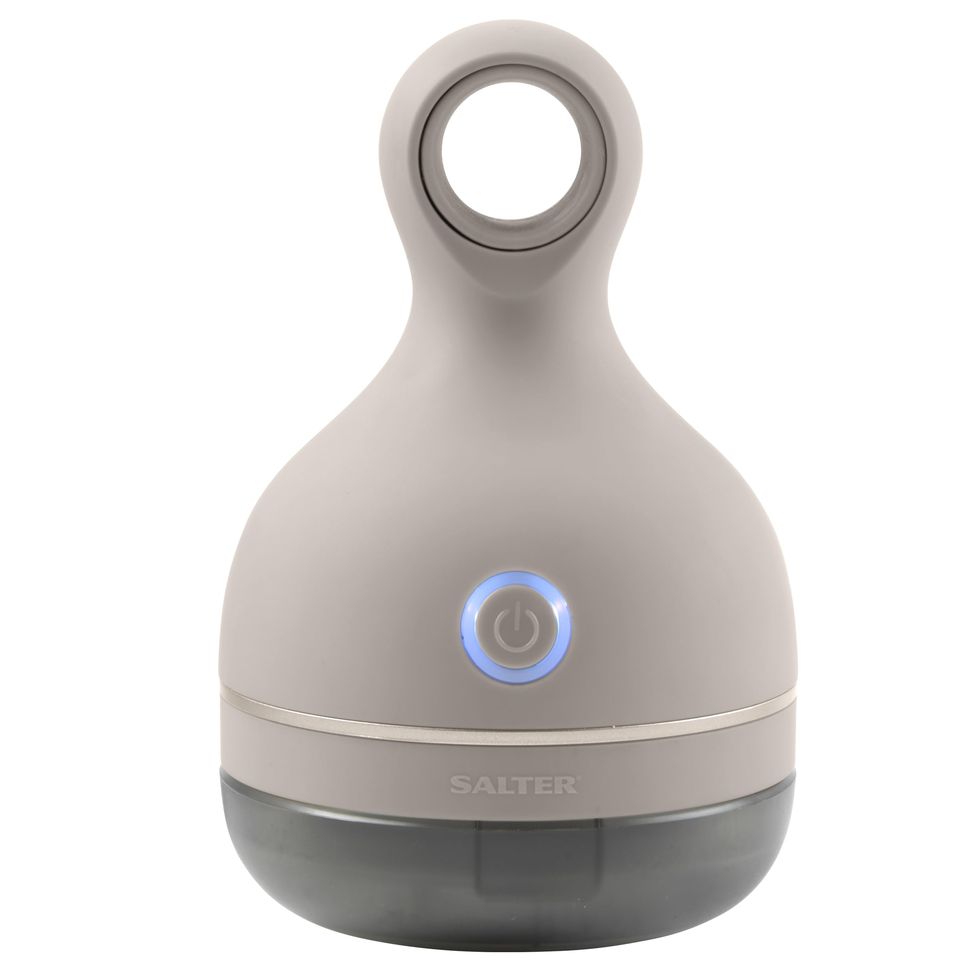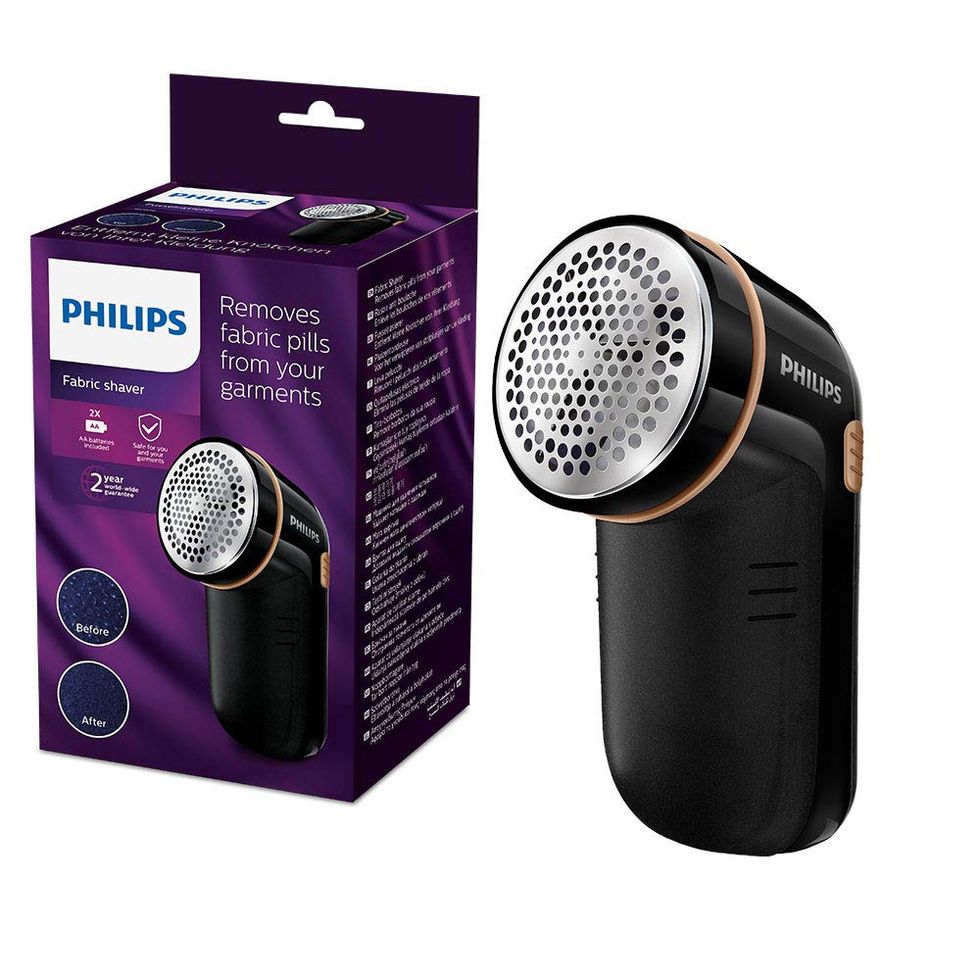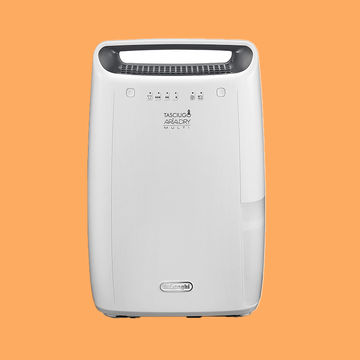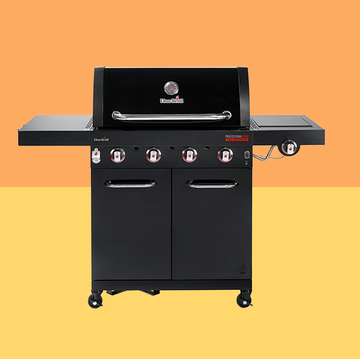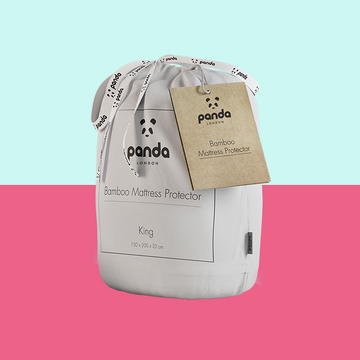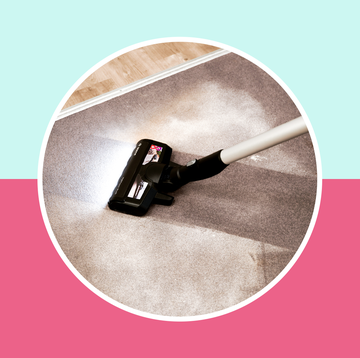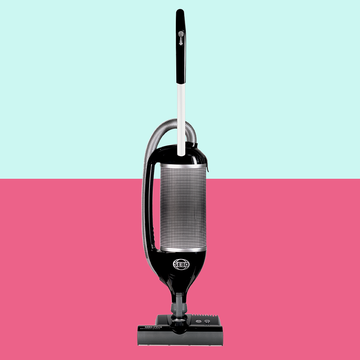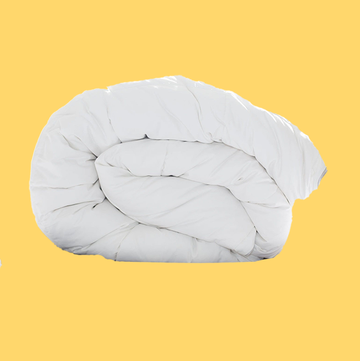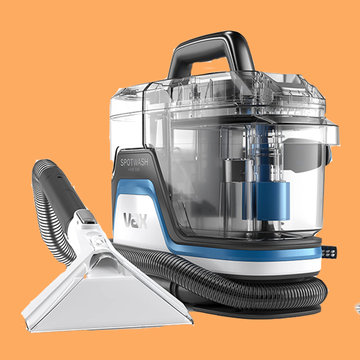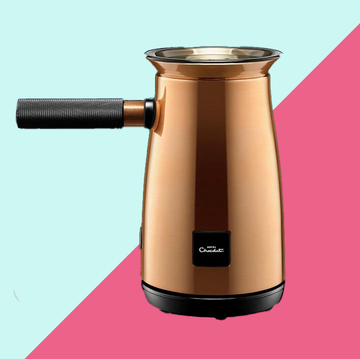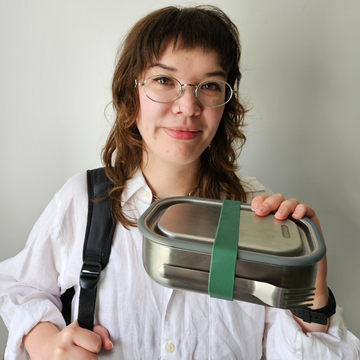I'm on a long-term quest to make my wardrobe more sustainable. In the past year, I've cut back on buying new, found some excellent bargains on Vinted (an M&S x Bella Freud skirt was my latest steal) and even learned to darn. Yes, I have mended (walking) socks.
But when I took a look at some of my favourite knits recently, I was met with a sea of bobbles. I faced a real quandary. I didn’t want to replace them, but they were far too scruffy to wear into the office. It was time, I decided, to try out a product that's been haunting my TikTok For You Page for years: one of the best fabric shavers.
I’ve seen countless videos promising they'll transform my knits from drab to fab. I've even written about their benefits based on our Good Housekeeping Institute testing. But for some reason – probably laziness, if I'm honest – I've never used one myself.
What to read next
Of course, only the Good Housekeeping Institute’s finest would do, so I opted for our winner, which scored 92/100 in our lab: the Philips 1000 Series Fabric Shaver. Would it transform my knits so they'd see me through another season? I got debobbling to find out.
How to use a fabric shaver
Fabric shavers are handy little gizmos that cut away bobbles and lint from your garments and upholstery. There are a few different kinds – the one I chose is a rechargeable, electric design, sort of like a razor for knitwear.
If you’ve got lots of delicate wools in your wardrobe (cashmere, I’m looking at you), I’d probably go for a manual one to avoid chopping the fibres down too much. The Good Housekeeping Institute's top pick for less hardy fabrics is Gleener's £20 fabric shaver.
As I was sprucing some old polyester jumpers, an electric model was ideal. You still have to be careful not to apply too much pressure and cut away too much, but the Philips 1000 Series has a cap that you can pop on for an added layer of protection when needed. The instructions advise you to use this for garments with long lint (and remove it for short lint).
Read our household advice editor's step-by-step guide for more on how to use fabric shavers.
My verdict
I’ll be honest, I was expecting a magical transformation – jumpers that looked like new again. I didn't quite get that. Sadly, one gadget can’t undo years of wear in an instant. It's not a miracle worker, and stubborn bobbles in particular took more passes than I was expecting before they disappeared.
To be fair to the debobbler, I initially tried it out while wearing the jumper, which isn't what you're meant to do. When I laid it out on a flat surface instead (like I should have from the start), I swiftly went from sceptical to blown-away. It looked a whole lot better.
It was satisfying and simple to use – just charge it up and off you go. It keeps things neat and tidy too, as it collects all the lint as it goes in its pill container.
I was hooked, quickly revamping my other knits, and even a beloved coat, which had seen better days (that's putting it nicely). This fabric shaver is my new wardrobe staple.
The Good Housekeeping Institute verdict
Of course, you don’t just have to take my word for it. Our expert testers at the Good Housekeeping Institute have also put the gadget to work in the lab – on cashmere, lambswool and synthetics. Big bobbles were banished quickly, while smaller ones took a few passes (which is exactly what I found in my own tests).
Our testers praised the debobbler's practical design, which keeps things neat and mess-free. And once they got used to the initially fiddly-to-open collection bin, they had little to complain about. The battery lasted 90 minutes in the lab and there's even a low battery indicator so you know when it needs a recharge.
Trust us, much like a needle and thread, everyone needs a fabric shaver in their wardrobe.
More tried and tested fabric shavers
These debobblers have also been put through their paces in the Good Housekeeping Institute lab. Head to our best fabric shavers roundup to read the full reviews.
Hannah is our homes editor, specialising in reviewing the latest kitchen appliances, cleaning products, mattresses and bedding, and crafting equipment. Hannah has written about hundreds of products, from air fryers to smoothie makers to pillows, and is committed to finding the most reliable and best value for money buys.
Hannah is also interested in sustainability in the home and has completed a course with the University of the Arts London in sustainable textiles, so she can help cut through the noise on what’s green and what’s not. Hannah has an MA in Magazine Journalism and has previously worked as a freelance lifestyle and women’s sports journalist, working for Stylist, Sky Sports and more.
Hannah has also previously worked in a florist and can normally be found caring for her house plants or sewing something new for her home or wardrobe.






